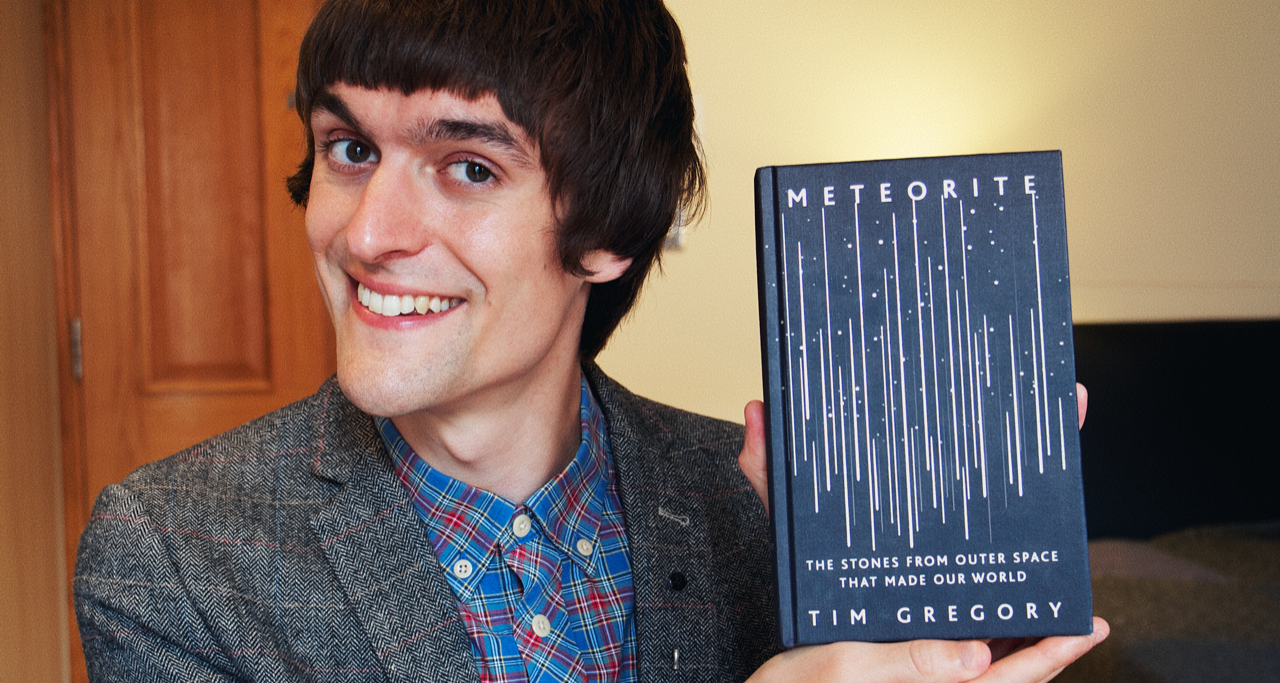Tim Gregory works as a nuclear scientist, holds a PhD in cosmochemistry and believes in the problem-solving power of science. He’s fascinated with meteorites, the “stones from outer space” that reveal what happened as our Solar System was forming some 4.6-billion-years ago.
Please tell us something about you and your professional background.
Hello! My name is Tim Gregory, and I have had a lifelong fascination with the natural world. I did an undergraduate degree in geology, and that’s when I discovered I could combine my love for rocks with my love for space in the form of meteorites. I ended up doing a PhD in cosmochemistry (meteorite science) and then worked as a cosmochemistry researcher. My career recently took a sideways step into nuclear science and I am now a full-time nuclear scientist.
When I’m not in the lab or writing, I’m usually either in the mountains hiking or playing my guitar.
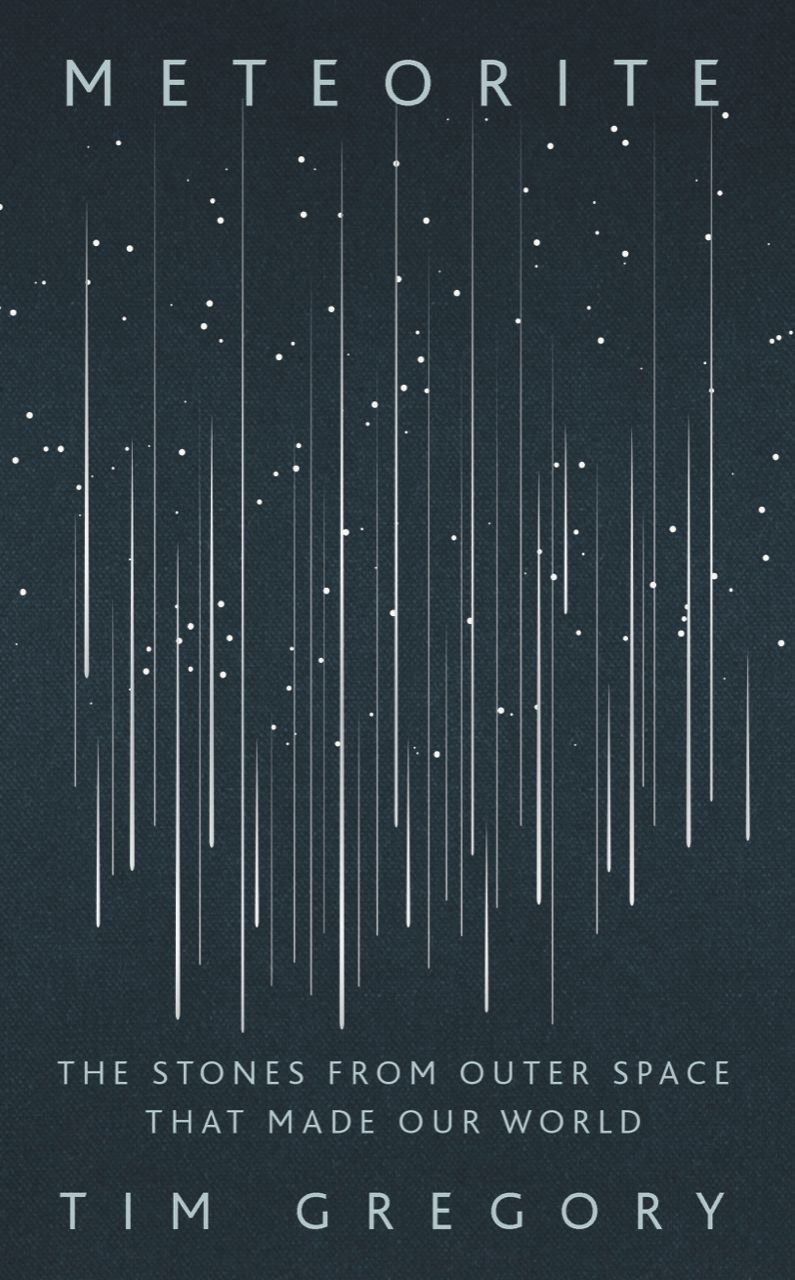
You’ve published a book about meteorites. What is so fascinating about them?
Meteorites are the only way that we can unpick what happened as our Solar System was forming some 4.6-billion-years ago. They are like time capsules that captured the process of how a giant cloud of incandescent gas coalesced into the planetary system we find ourselves in today. They chronicle the assembly of worlds. If the history of the Solar System is a storybook, then meteorites tell the first chapter.
Humanity has always had a fascination with meteorites. Stories of them falling crop up throughout the pages of human history and they have long been an inspiration for legend and lore. Tutankhamen’s dagger was made from an iron meteorite, for example.
As a former researcher, you’re probably experienced in academic writing. However, your book is intended for the general public. How is writing for academia different from writing a nonfiction book about science? Which is more difficult?
Academic writing is razor-sharp. There’s no room for anything that isn’t absolutely essential (even if it’s really interesting) and there’s absolutely no room for anything that isn’t strictly scientific. One of the things I enjoyed the most about writing a nonfiction book was being able to write about things because they were interesting rather than purely trying to support/dismantle a particular hypothesis. I also really enjoyed sharing my own thoughts on certain things.
I’m not sure I could choose whether I find academic writing or book writing more difficult. Each presents its own set of challenges and can be equally difficult in different ways. Both types of writing are very rewarding, though. :-)
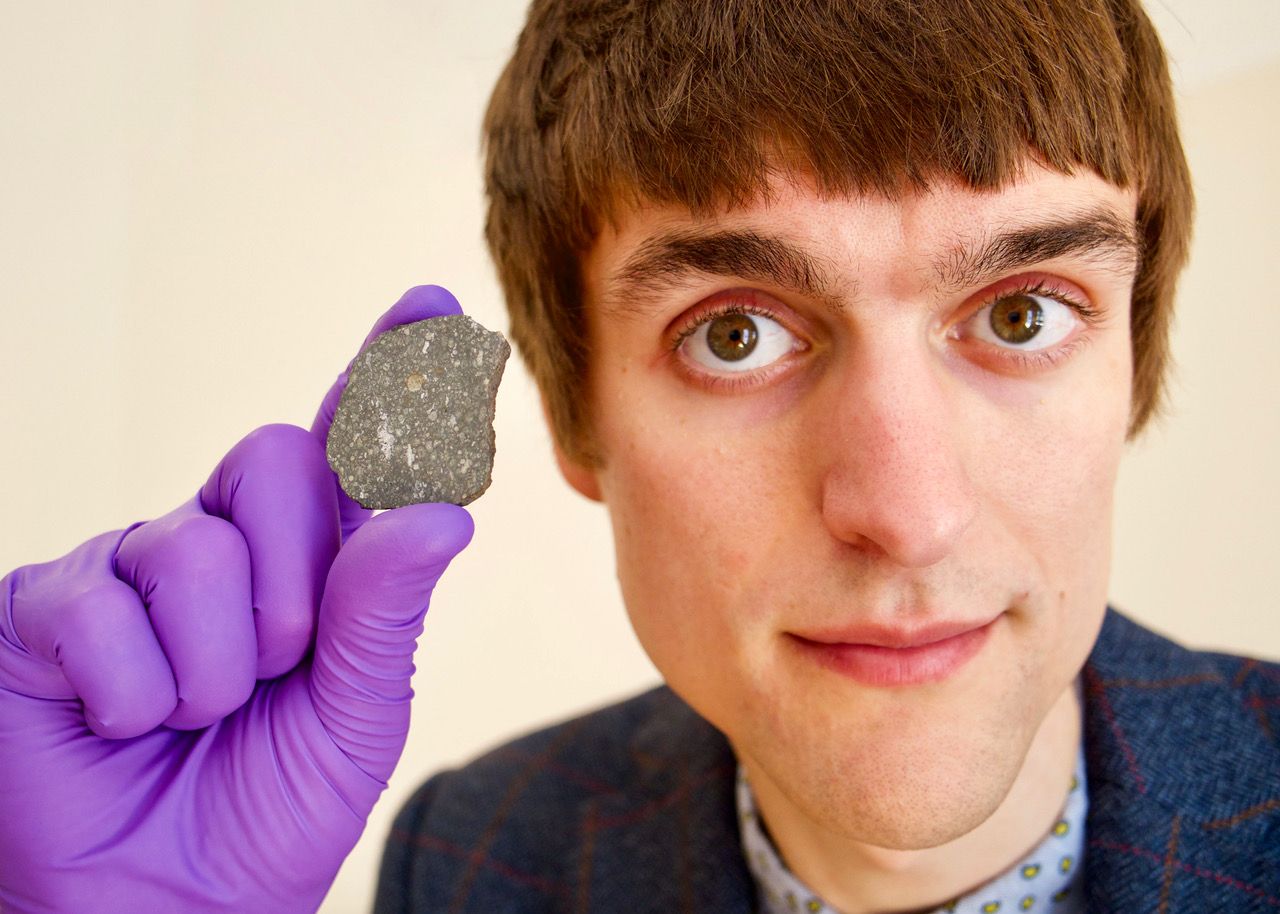
What else is vital for writing a great nonfiction book?
Two main things spring to mind.
Firstly, by our nature we are storytelling beings. Stories are one of the ways that we see and understand the world. While I was writing Meteorite I made a conscious effort to spin the hard science into a story-like structure — rather than simply outlining a body of facts — so that people could grasp it and relate to it. I also think (and hope!) that it makes for a more enjoyable read.
Secondly, it’s important to know when “enough is enough” when it comes to how much detail you delve into. With all of the amazing things there are to know about meteorites I could have written a book five times as long as I did, but a general readership likely wouldn’t have enjoyed reading a book so long, which defeats the purpose. It’s about striking a balance between being thorough without putting people off.
Please tell us about the development of the book and which role Ulysses played in this process.
Meteorite began life as a list of broad chapter ideas — each one on a different topic — in an order that would make it possible to spin into a story-like structure. Under each chapter heading I listed everything that I wanted to include in that part of the book. There was a little bit of re-shuffling during the writing process, and a little bit of adding new sections and cutting old ones, but my initial plan for Meteorite is almost the same as the finished book.
The daily progress goal was a guiding force in keeping me writing every day.
I used Ulysses pretty much exclusively through the whole thing, from planning, to writing, to sharing, and (finally) to editing. Adding my own notes and annotations to the manuscript was quick and easy, and I could just hide them from the exported version of the text if I didn’t want my editor to see them; removing sections from the manuscript without losing the text or going through the hassle of copying and pasting them into a different file was dead easy; and organising my chapters and drafts was easy with folders, smart folders, and keywords.
The daily progress goal was also a guiding force in keeping me writing every day :-)
I wrote almost the entirety of the manuscript on my iPad, and did almost all of the editing on my MacBook.
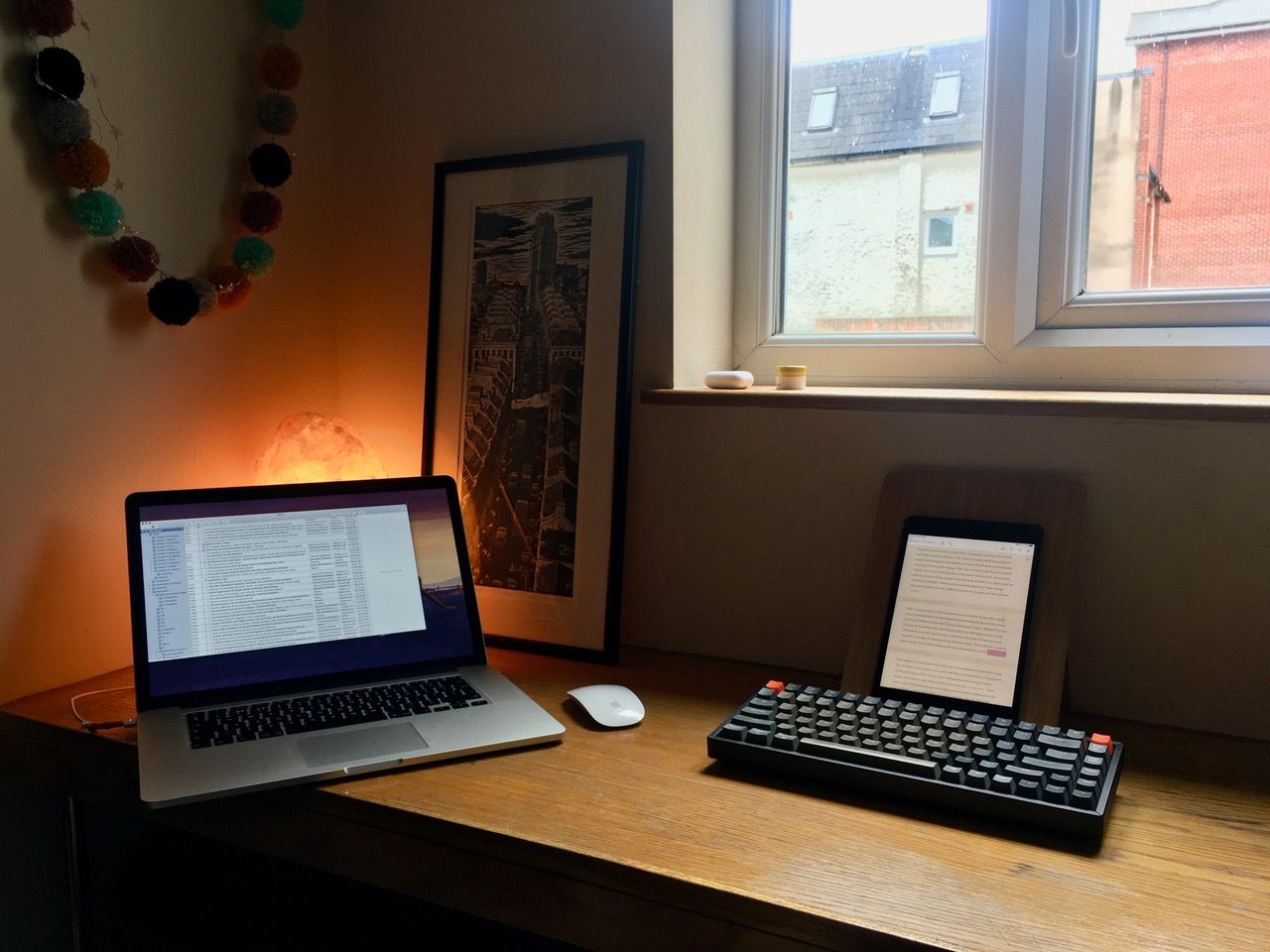
Besides your work as a researcher, how did you manage to carve out the time for writing the book?
Routine, routine, routine. That was one of the most important things for me. Once I had a routine, writing became a habit and as much a part of my day as brushing my teeth.
Self-discipline was a huge part of it, too. For almost 2-years I woke up at 05:30 on the dot and wrote for 90-minutes before I started my day. Some of those early mornings were tough, but the tranquility of writing while feeling like one of the few people in the world to be awake really saw me through. I also wrote for an hour or two before bed.
Writing Meteorite definitely wasn’t easy, but I’m glad I did it.
Once I had a routine, writing became a habit and as much a part of my day as brushing my teeth.
How difficult or easy was it to find a publisher?
I feel fortunate that it was quite a smooth process for me (especially since I’m a first-time author!).
I wrote the first three chapters of Meteorite and a synopsis and summary of each chapter, and then sent them off to a few different publishers. Luckily a few of them liked what they read and were interested in publishing it!
Which role does writing play in your life, and do you think of writing more books?
During the course of my PhD I really learned that the main purpose of writing is to clarify ideas and think things through, and so I usually try and write if I have a problem at work that I need to solve (or even a problem at home!) even if I know nobody will ever read it.
I’m not working on a new book at the moment, but watch this space :-) My new job as a nuclear chemist is interesting beyond my wildest dreams and nearly every day I come across something that makes me think, this would make a great book chapter!
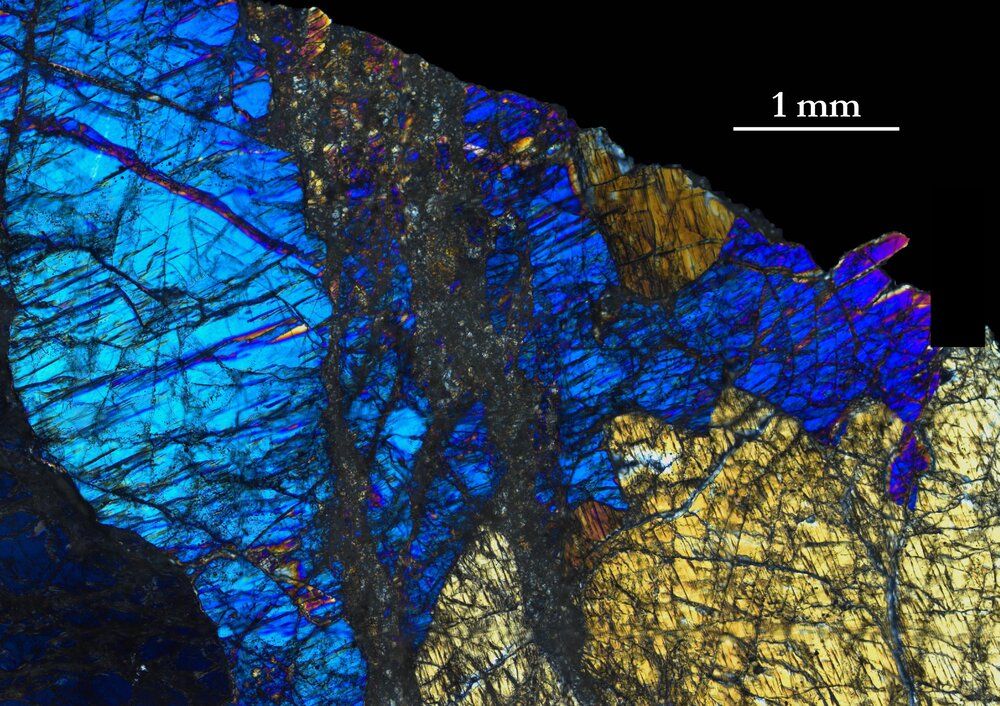
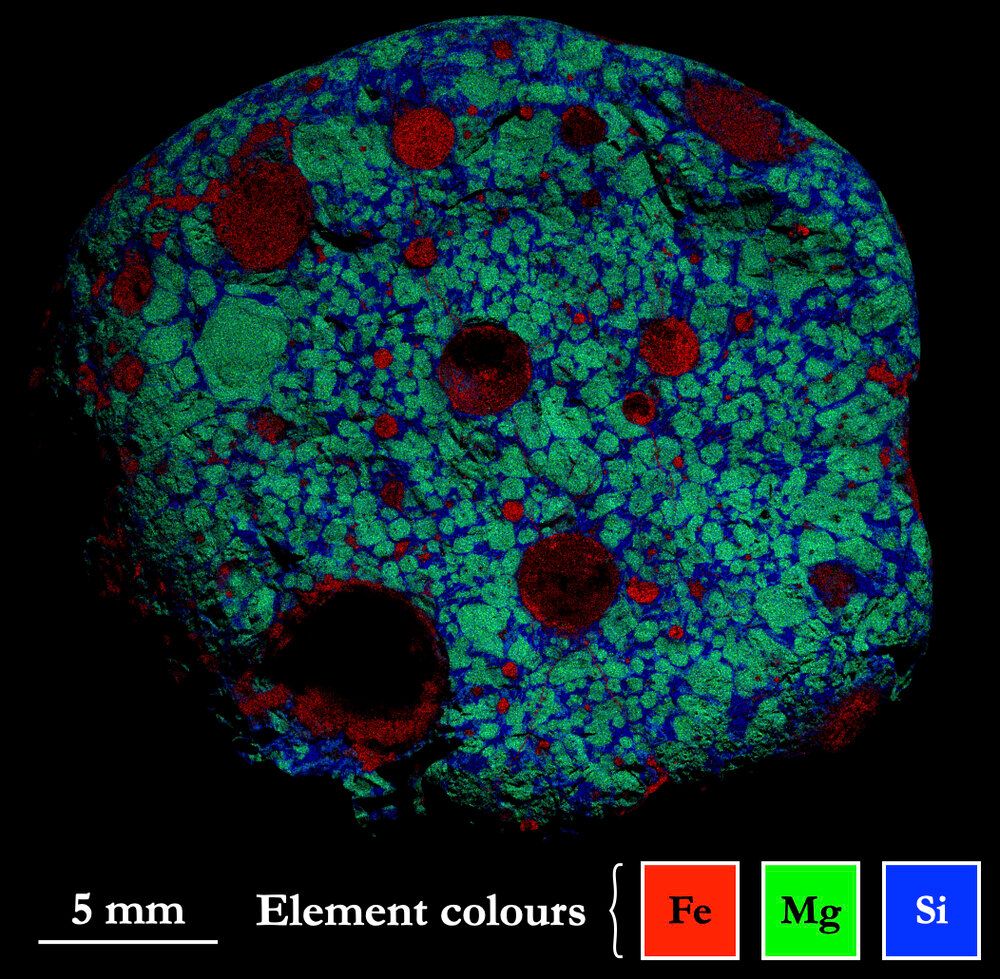

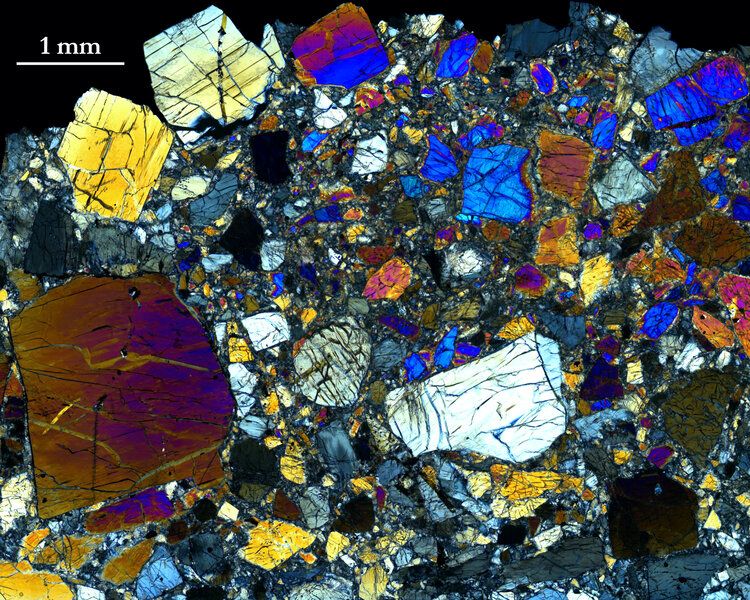
How did you find out about Ulysses and what do you especially like about it?
I first heard of Ulysses on one of my favourite podcasts, Cortex, when the hosts were discussing writing tools. When I started writing Meteorite I knew that I needed a place to write that was both functional and a delight to use. Ulysses was an obvious choice and did the job perfectly.
I do my best work when I’m working in a beautiful space. After an hour or two tweaking my Ulysses workspace I had a space to write that was distraction-free, functional, and beautiful. Everything syncs across macOS, iOS, and iPadOS, too, and so I only had to set up my workspace once! Syncing via iCloud also meant that I could take my writing with me and work on Meteorite from anywhere: writing while on the train, working on a sentence while standing in line for coffee, or quickly getting down those ideas that come to you while you’re lying in bed trying to fall asleep!
What other programs and tools do you use, and how do they help you with productivity?
I read hundreds of documents — academic papers, textbook chapters, webpages, etc. — as part of writing Meteorite. Zotero was a total lifesaver when it came to keeping track of them all. I’ve used it for years as a paper database and citation manager as part of my academic work, and it was amazing for writing nonfiction too. I had a Zotero collection for each chapter of my book, and so I could put my hand on exactly what I was looking for with minimal effort.
You’ve presented science on TV and in the radio as well as live at science festivals and schools. In the videos I’ve seen, you seem sparkling with enthusiasm for the subject. Where does your passion for science originate?
Honestly, I’m not too sure where it comes from. I think that interests of any kind are probably innate and just a part of who you are. A love for science has always been in me. I’ve been very lucky in my life that I’ve had people to nurture and encourage my interest — my mum and a few teachers spring to mind, for example — and so that definitely plays a part.
I really believe in the power of the scientific enterprise to make the world a better place.
I really believe in the power of the scientific enterprise to make the world a better place. Learning about the natural world is an end in itself, but it’s even better than that: we can use that knowledge of the natural world to decrease the total amount of suffering in the world! It’s an amazing thing. Of course, we make mistakes along the way and sometimes create new problems, but if the history of science has taught me anything it’s that there is no problem that we humans can’t solve if we work together and have the will to solve it.
You’ve recently taken a full-time position as a nuclear chemist. Will you still find time for meteorites and for educating about science subjects?
Absolutely :-) meteorites, space science, and geology have been close to my heart for a long long time and they’re not going anywhere any time soon.
One of my aims in life is to encourage people to take an interest in science, and to be an advocate for the good that it brings to the world. Science is one of the best problem-solving tools we humans have ever crafted, and goodness knows we have no shortage of problems in the world in need of a solution!
If you would like to find out more about Tim, his book, and meteorites, visit his website. You can also follow him on Twitter where he posts about science and life as a scientist.
